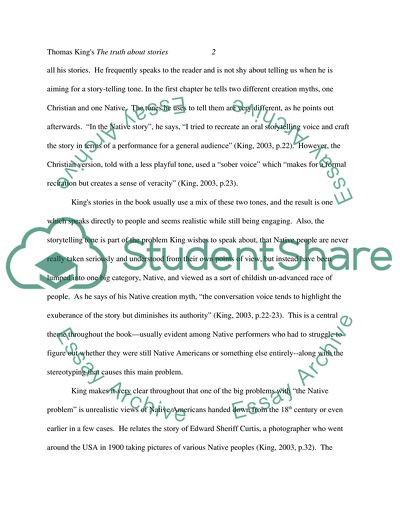Cite this document
(“Thomas King's The truth about stories Essay Example | Topics and Well Written Essays - 1250 words”, n.d.)
Retrieved from https://studentshare.org/literature/1574937-book-reflection-editing
Retrieved from https://studentshare.org/literature/1574937-book-reflection-editing
(Thomas King'S The Truth about Stories Essay Example | Topics and Well Written Essays - 1250 Words)
https://studentshare.org/literature/1574937-book-reflection-editing.
https://studentshare.org/literature/1574937-book-reflection-editing.
“Thomas King'S The Truth about Stories Essay Example | Topics and Well Written Essays - 1250 Words”, n.d. https://studentshare.org/literature/1574937-book-reflection-editing.


